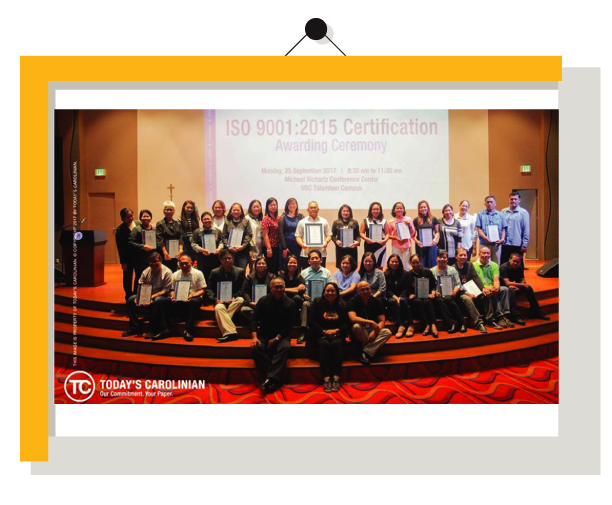Higher Education as the process of drawing out a person’s full potential through college schooling has been revised today in accordance
with CMO 46, s2012, whose full title is “Policy Standard to Enhance Quality Assurance (QA) in Philippine Higher Education Through an
Outcomes-based and Typology-based QA.” This helps us to view education more precisely under three formalities:

The accent is on cognitive activities intended to cultivate a broad perspective, a critical mind, and a creative imagination – general competencies we expect of persons to be able to function in society and culture with reasonable proficiency, productivity and satisfaction.
Rather limited in the past, it is given stronger emphasis today through academe-industry linkages, on-the-job training, apprenticeship, Dual Science, capstone projects and so on. Only through anticipatory practice of what one will be engaged with in one’s profession or discipline can one also be assessed in terms of aptitude and expertise. In its distinctive Roadmap to integrating all the critical elements, USC has adopted the Research, Development, Extension and Publications (RDEP) training method to aid students in acquiring the hard skills of their trade.
Authentic education, however, would be remiss if it does not also aim at forming the student into a moral person and socially-engaged citizen. Formation deals with idealized images of oneself as a responsible and conscientious moral agent, defined through life-purposes, character, values, principles and congruent behaviour manifest in life-giving relations, social compassion, cultural rootedness and so forth.
Fr. Dionisio M. Miranda, SVD
USC President
2008-2020
The following offices / units are proud to be part of USC’s Student Support and Services:


Copyright © 2025,
Designed by iwhitestone


